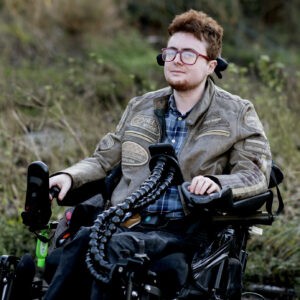
COVID-19, disabled people, and the right to LIVE (independently)
Coronavirus is ripping through care homes. It is killing thousands of people who are trapped in these institutions, often with no choice or control as to who provides their ‘care’, no way of protecting themselves, and who are left watching their friends die. Part of the Spanish approach has been a rapid deinstitutionalisation (LINK). They’ve realised that these care homes have become death traps, and that once COVID-19 is in the home, even with the best efforts, people can’t be kept safe from it. Resultingly, they’ve encouraged and supported people to move to live with their families or in hotels, even for a short period.
Nothing like that has been tried here. We have a system designed to support it, with direct payments firmly established, but people are being kept in these institutions or under agency care, with nothing to do except wait for the virus to get them, and to shout as loudly as possible about the risks.
In the community, people can choose between ‘direct payments’ and a scheme where care is commissioned for them. Direct payments allow people to access their care budget, and choose who they employ to meet their needs, setting the conditions themselves. This is often an alternative to having agency care, where you might have no choice over who came, and where those agency carers typically visit tens of other vulnerable people.
Again, care agencies risk becoming an incredibly dangerous vector for COVID-19, just as care homes do, with infected but pre-symptomatic or asymptomatic carers trekking between a round of vulnerable people, often by bus. People are typically visited by multiple carers, and these carers may well be visiting both people with COVID-19 and people who are extremely vulnerable.
Carers often work under dreadful conditions – paid minimum wage, not paid travel time between visits (though I believe this is illegal), expected to work with no PPE and put their own health at risk for the people they’re supporting. Similarly care home work is incredibly physically and mentally intense, and massively underpaid. Carers, in this situation, cannot help tracking COVID-19 between people, however careful they are.
Direct payments shift the system. They allow people to recruit and employ directly, and agree the terms and conditions of their employment. They mean disabled people can employ carers (or as we generally prefer to say, “personal assistants” that we have chosen, who potentially don’t visit other disabled people. They mean I can choose who helps me with intimate personal care, who washes and dresses me. They mean I can take the strongest of steps to keep myself safe from COVID-19.
Now is the time for a massive expansion of this programme to allow people to move out of care homes and away from agency care. They should be allowed to employ housemates, family members, neighbours, anyone willing and able to support them, in whatever flexible manner meets their needs. The funding should be generous and easy to access. Local authorities should be forming teams designed to promote this and contacting people directly to offer it as a possibility during this crisis.
This is how we save lives.